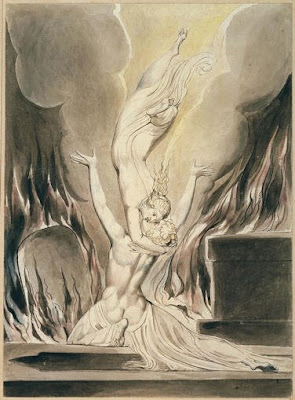
Theories abound, as you will see if you google 'Theories of Soul.' They’re well worth reading up on, not least to see that there’s nothing new under the sun. The point of theories is this: they make order out of chaos. It’s important to remember this. Nothing about the soul can be proven. All we are doing is finding ways in which we can help people who ask for our care to feel more settled and safer, and doing that service for ourselves too. It’s impossible to live in the chaos that is the randomness of life and so we see patterns where there may be none.
Whenever I’ve travelled more than 10 miles I notice that I feel a bit discombobulated for a while, and that the longer I travel the more discombobulated I get. It’s not so much how far I travel as the length of time spent travelling. When I travelled to Australia I was almost as off as when I took a particularly long journey to Wales. My understanding of this is that my soul can’t travel as fast as cars, trains and planes.
There’s a tradition about a silver thread that connects the soul to the body, and there’s a tradition about soul fragmentation. Does my soul travel like a balloon on a string stretching all the way to Australia? Maybe it does, the soul doesn’t function as part of the material world. I feel instinctively that my soul can fragment and can be put back together too. And it may be that time spent quietly, visualising parts of my soul being sought out, reassured, brought back, moving into place and settling in, and then taking time to nurture them, may simply be good for my psychology.
Who knows?
It’s useful to have your own theory of what the soul might be and how it might function so that you can discuss it with people in your care. Many Pagans will have a belief in reincarnation but as soon as we start moving from the idea of the wheel of rebirth, of a simple, mechanical process of birth, death, birth, it cannot help but become complicated.
What is reborn? What happens in the bit after death? Do we learn something? How do we learn it? Who teaches? Why? How do we store the learning? How long does it take? Why?
Most of us have theories about all kinds of things but when faced with illness, madness, bereavement, death, these theories can get shaken. Most of the people I’ve worked with seem wobbly, not settled, perhaps fearful and they may not even be aware of it. There may be very good psychological and physiological reasons for this. Hospitals aren’t places people actually want to be. No one wants to be ill. Illness makes the body uncomfortable. Surgery is painful. Medication can affect the mind and the body. And as a patient or any person suddenly thrust into a vulnerable position you are bottom of the pile in the power stakes. Never underestimate the impact of that.
So we need to know how to help people negotiate where they are in relation to their soul and their body. At times it may be best to leave the body partially uninhabited by the soul rather that force it back into a place that it feels unsafe in. Can a whole soul increase or decrease the perception of physical pain? At times, bringing the soul back into the body may help someone feel more whole and may help them be physically and emotionally healthier. It can give a person an excuse to get better. And there are times when managing a persons expectations of their soul can simply help them feel safer, held, cared for, less isolated. Loved.


